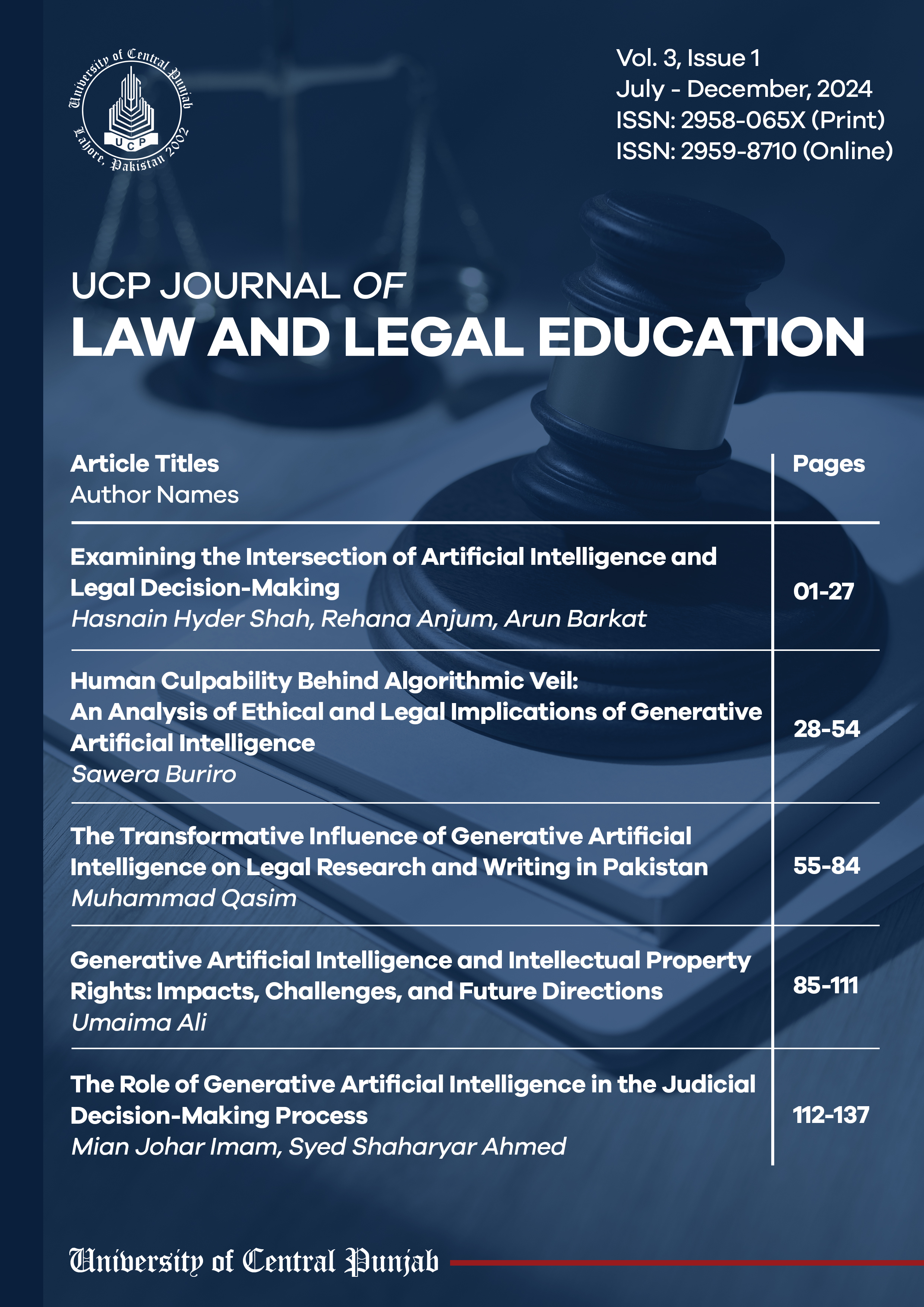Examining the Intersection of General Artificial Intelligence and Legal Decision-Making
DOI:
https://doi.org/10.24312/ucp-jlle.03.01.307Keywords:
General Artificial Intelligence, Decision-Making, AI Judges, Lack of Confidence, Ethical FrameworkAbstract
This research paper examines the increasing need for and importance of artificial intelligence (AI) in the legal profession. Along with highlighting its significance, it discusses the benefits and drawbacks of AI in the legal profession. Furthermore, it also analyses the capability of AI to replace human judges in future. Additionally, it investigates the possible problems and impacts on society by integrating AI into the legal profession, such as people's lack of confidence in AI-generated decisions, parties' privacy, unemployment, and transparency. Moreover, it explores how AI can serve as an assistive device rather than a complete replacement for human involvement. It examines countries like China, the USA, and Canada, where AI machines are already being used in their legal proceeding for research, decision-making, and even in some countries, as a substitute for human judges. Furthermore, it investigates the social, ethical and economic effects, and their sufficient solutions, by integrating AI into the judicial system, especially in Pakistan. The effectiveness of AI is compared to human judgments to assess its potential role. Lastly, it provides recommendations for the better implementation of AI tools in Pakistan’s judicial system, suggesting strategic actions to facilitate the integration of AI tools in the legal field.
Downloads
Published
Issue
Section
License
Copyright (c) 2025 UCP Journal of Law & Legal Education

This work is licensed under a Creative Commons Attribution-NonCommercial 4.0 International License.




